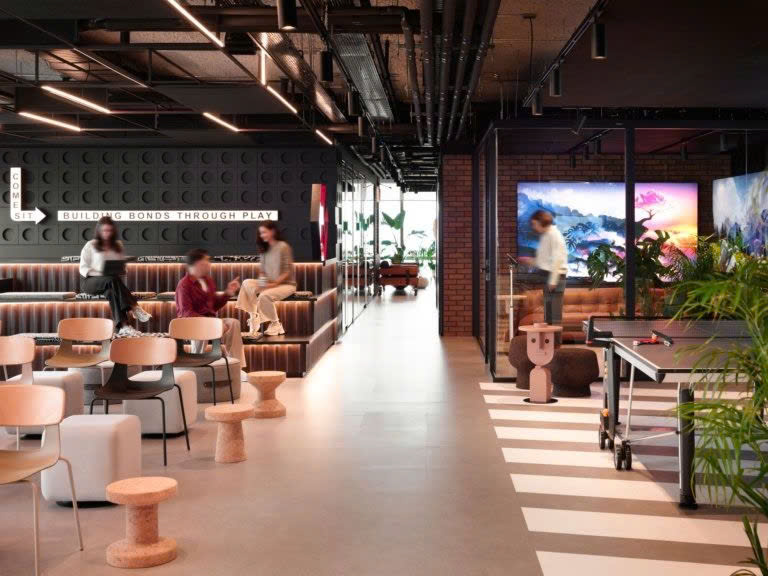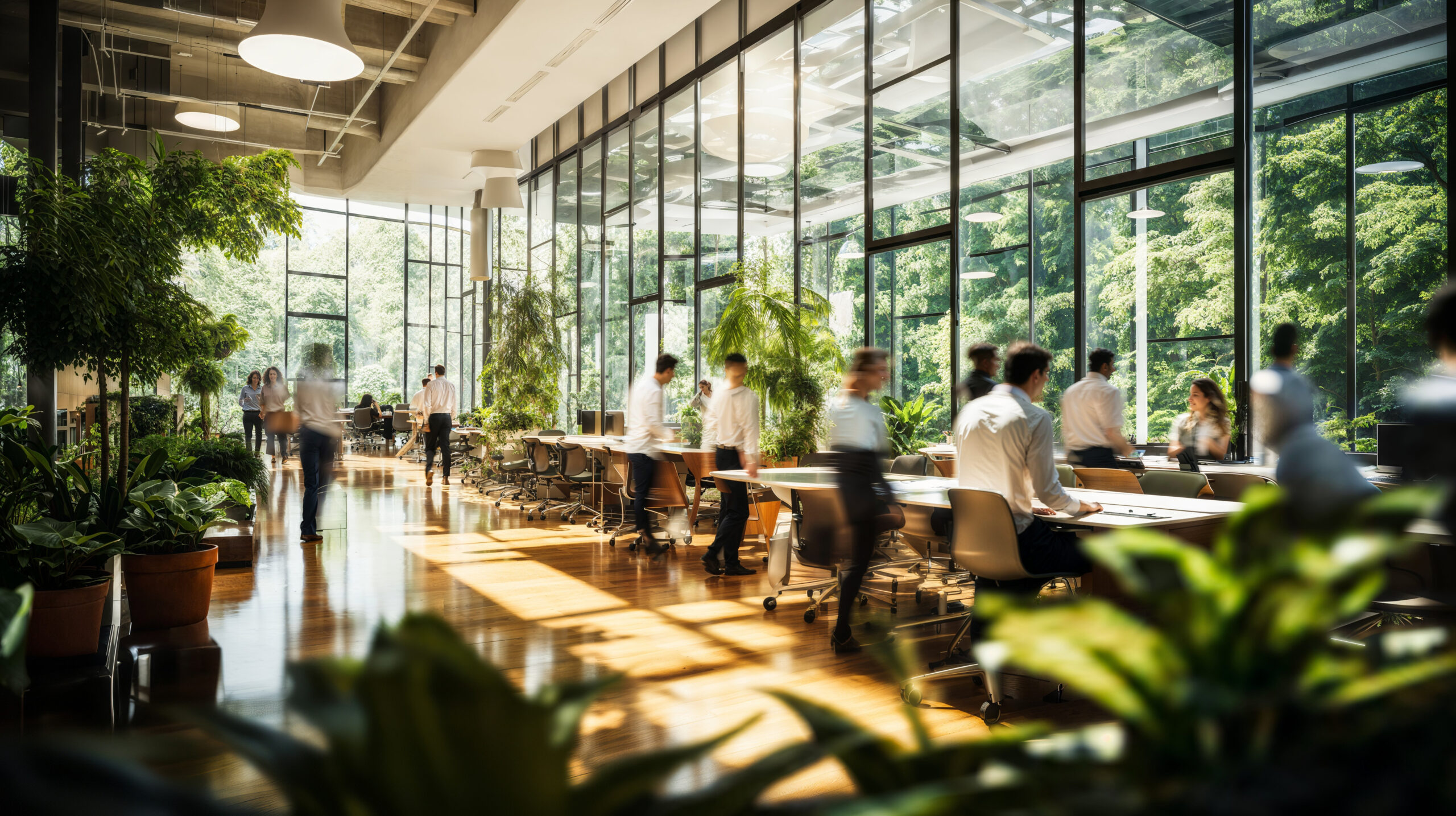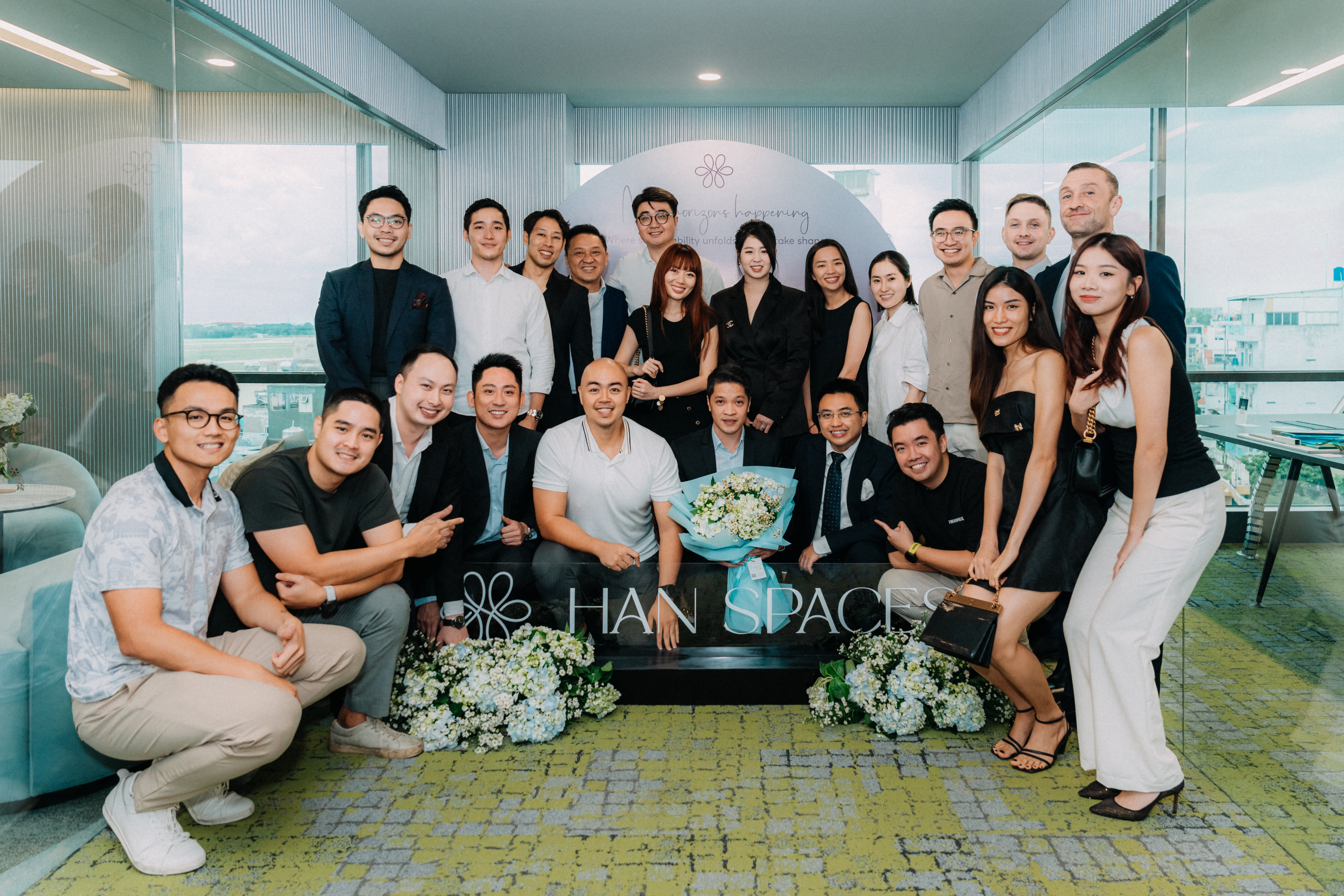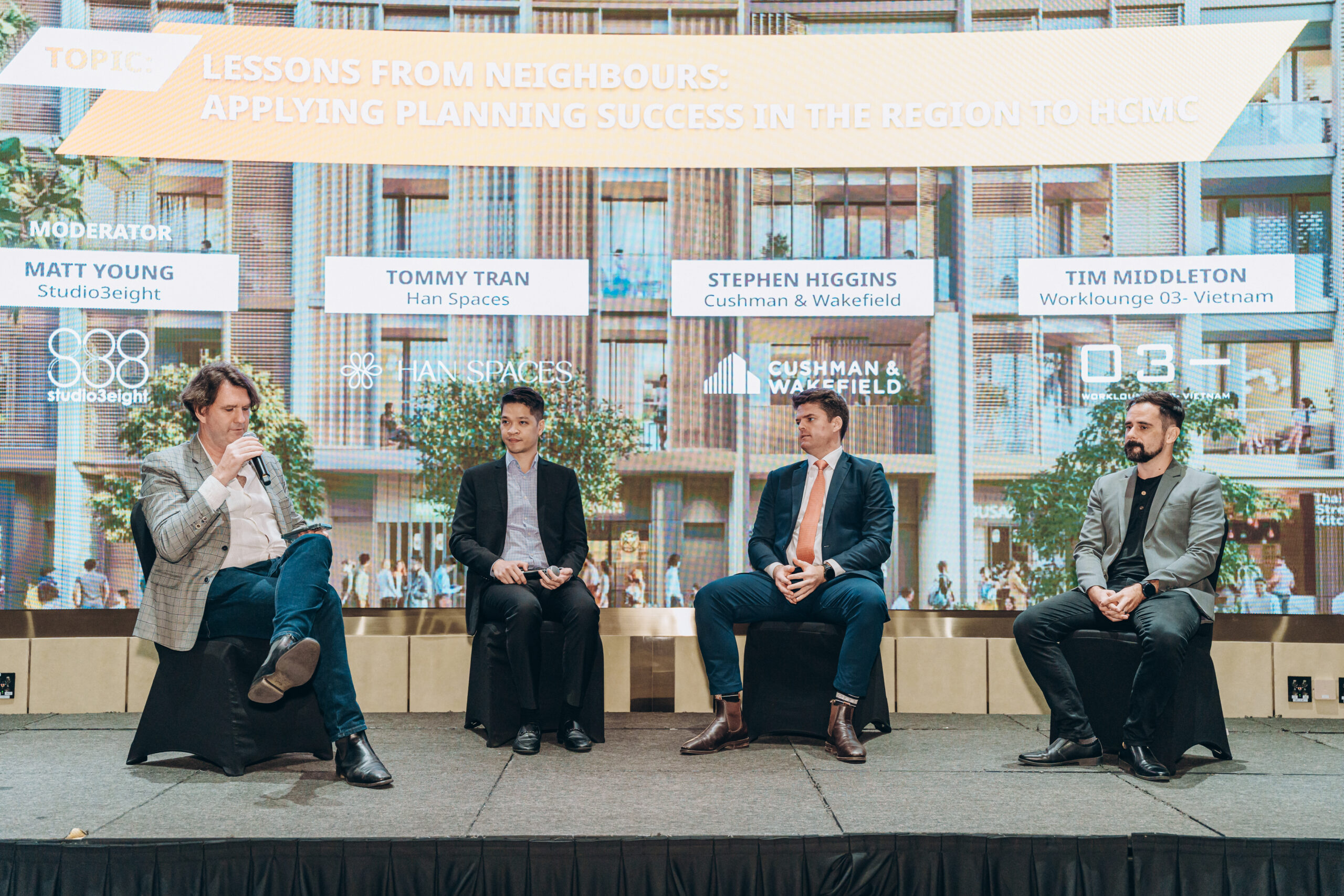How to promote efficiency in the workplace through strategic design
Office design plays a crucial role in dictating efficiency in the workplace. It serves as a pivotal factor impacting not only employees’ productivity and collaboration but also their engagement and overall well-being. A well-designed workplace can foster an inspiring, positive, and productive environment. Conversely, a poorly designed layout can significantly impede performance and cause employee dissatisfaction. Let’s dive deeper into how office design can have an impact on efficiency in the workplace and its practical application.
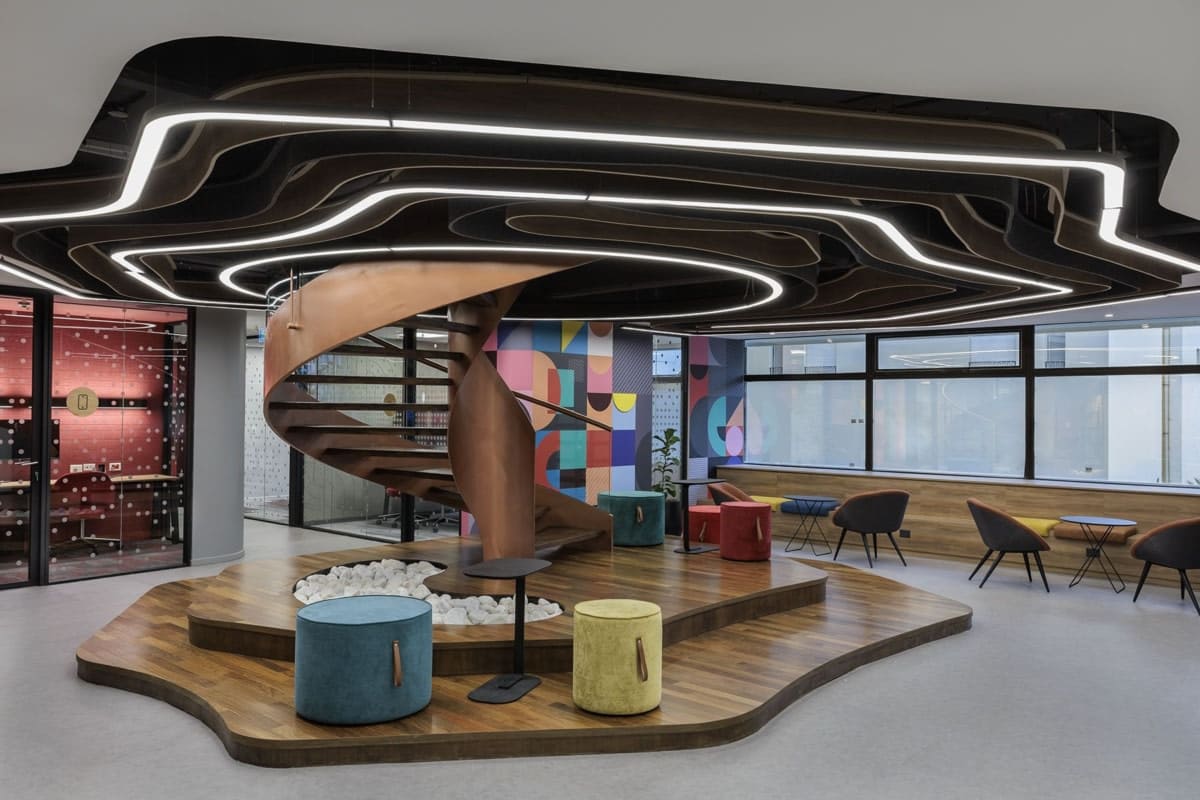
How to promote efficiency in the workplace through office design
Boosting employee productivity
Numerous factors profoundly affect employee productivity. First and foremost, efficient office layouts optimize employee movement and workflow. Hence, it reduces distractions and reduces time spent searching for resources. Another way to improve employee productivity is by enhancing the lighting in the office. A study in the Journal of Clinical Sleep revealed that workers sitting next to a window sleep beter and perform higher than they don’t. It is important to realize that more natural light means more happier and productive employees.
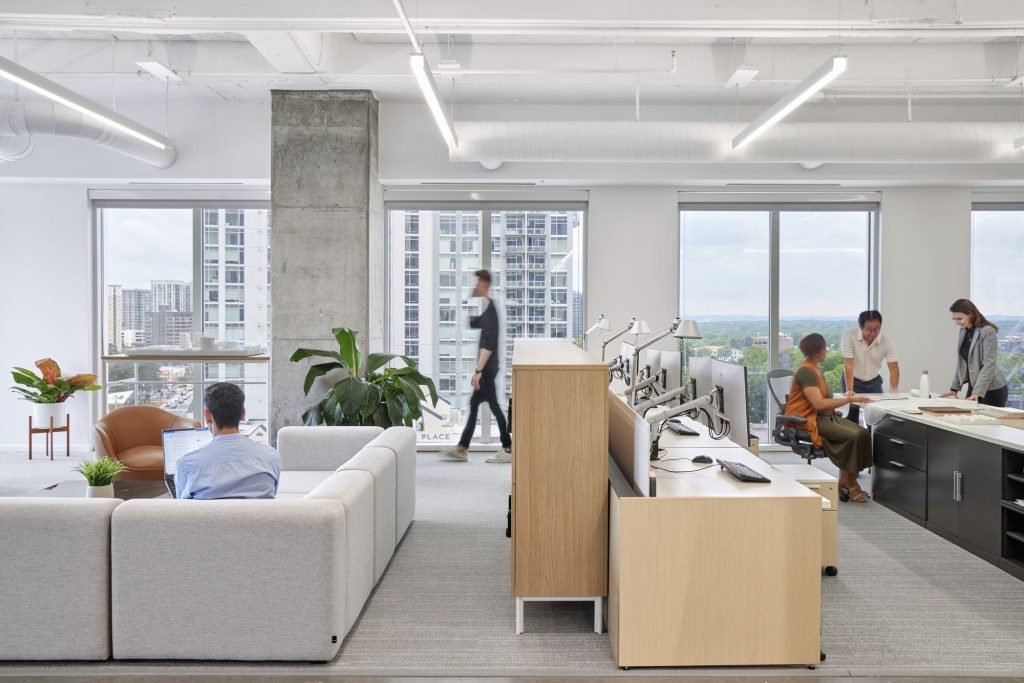
Enhance the lighting in your office to boost employee productivity.
Another way to maximize productivity is by raising the ceilings. According to studies, people prefer ceilings that are 10 feet high, and surprisingly, higher ceilings are linked with thinking more freely. So, consider soaring spaces for a lift in employee performance.
Fostering collaboration and communication among team members
Current workplace design also prioritizes employee collaboration and communication. Including thoughtfully designed communicable areas, breakout spaces, or meeting rooms facilitates interaction, brainstorming, and knowledge sharing among all team members. Besides, to encourage more spontaneous interactions, modern office designs are likely to break down silos by incorporating open-plan spaces, creating open and flexible spaces.
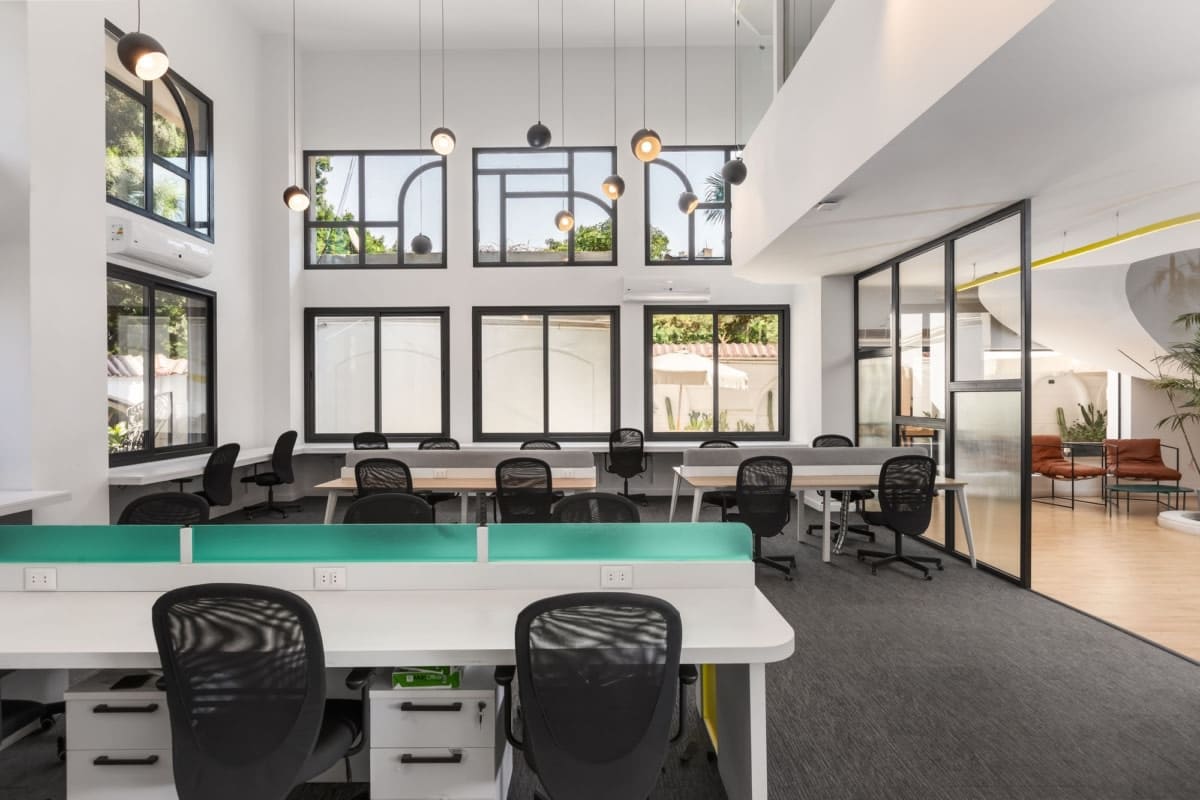
Fostering collaboration and communication among team members with open space
We are now living in a technology-driven world; that’s why it is important to leverage technology to create seamless communication. Several tools like video conferencing, instant messaging platforms, project management software, and shared meetings or workspaces aid real-time communication and collaboration between teams and departments.
Improve employee physical and mental health
To attract, engage, and retain top talents within your business, prioritizing both the physical and mental health of employees when designing workspaces is vital.
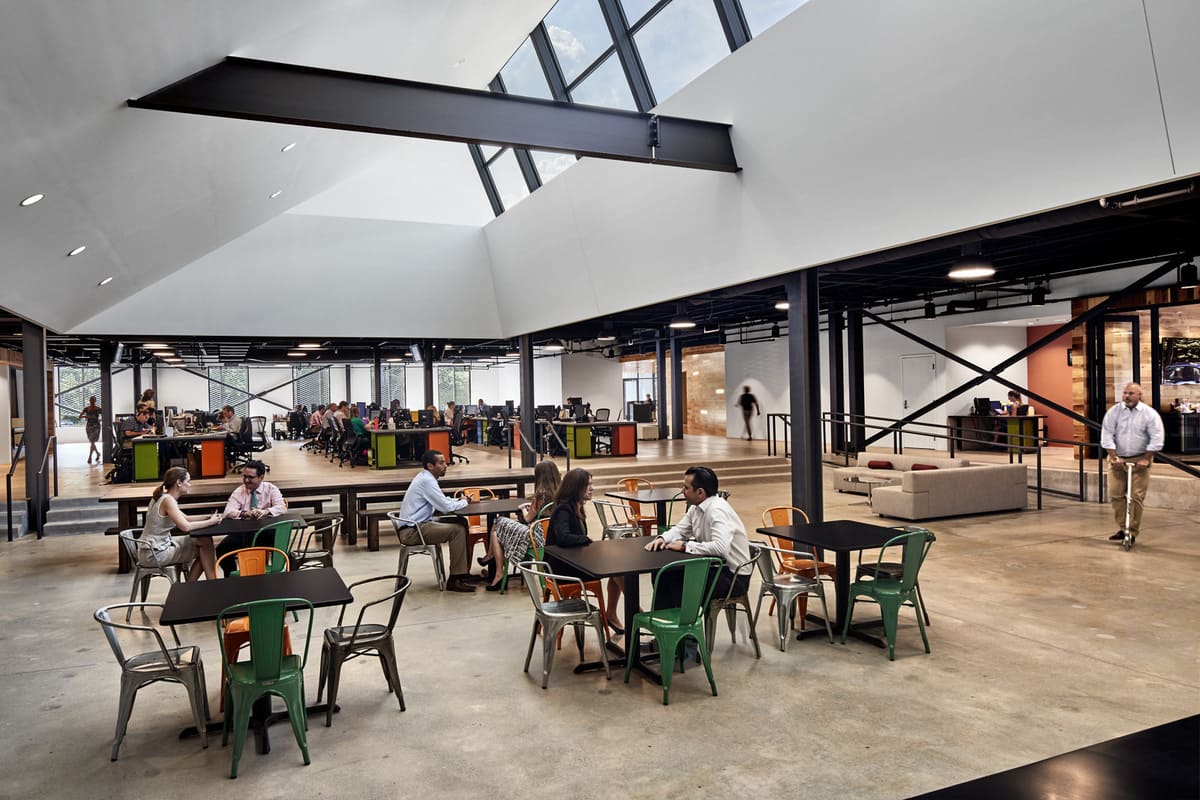
The physical and mental health of employees are top priorities.
To nurture talents, employers should make employees’ health a priority. While several companies prefer their staff to work 24/7 at their desks, it is important to recognize that the human body is not designed to sit all day long. Incorporating movement into the workday results in more blood flow to the brain, enhancing productivity, concentration as well as physical health. Therefore, to create a healthier workplace, it is imperative to include various facilities in the office layout. These may encompass open stairways, adjustable workstations, bicycle storage, shower areas, workout rooms, etc.
In addition to employee physical health factors, businesses should consider their employees’ mental well-being of their employees. Almost 49% of employees are reported to feel lonely at work, mainly stemming from a lack of face-to-face interactions. This sense of isolation can negatively affect their mental health and job performance. Addressing this challenge involves incorporating strategies to improve employee well-being, such as integrating greenery within the office and fostering workspace flexibility. Additionally, maximizing natural light is essential to improve mental health and reduce stress. Specifically, exposure to natural light has been associated with higher levels of happiness, improved sleep quality, and reduced stress levels among staff members.
Enhancing employee engagement and retention
Office design influences efficiency in the workplace by affecting employee engagement and retention. An ideal workplace is where employees can feel comfortable, like a second home, and feel a sense of belonging. Businesses can empower their employees by allowing them to personalize their workspaces, instilling a feeling of ownership and connection to the environment.
Offering spaces for social and informal connection cannot be overstated. In essence, we are social animals, and we need to have spaces for connecting and talking informally with our colleagues in a more relaxed and pleasant setting. Hence, to keep employees engaged, a thoughtfully planned office should include spaces facilitating social and informal conversations.
Improving workplace safety
Efficiency in the workplace is incomplete without ensuring safety for all employees. Prioritizing workplace safety is paramount from the beginning process of office design. Needless to say, clear signage, designated walkways, and safety markings are vital to reduce the risks of accidents and falls.
A standard office should have a fire alarm system, safe evacuation routes, and emergency response procedures to prepare for an emergency. A functional workplace must first and foremost prioritize the safety of all employees.
Conclusion
To summarise, office design significantly influences efficiency in the workplace by impacting employee productivity, collaboration, physical and mental well-being, engagement, and safety. An optimal workplace design can enhance concentration, foster creativity, and promote a healthy and positive work environment, resulting in heightened productivity, employee satisfaction and retention, and overall business success. It’s time for businesses to rethink their office and embark on the journey to create an inclusive and ideal workplace for their employees.
